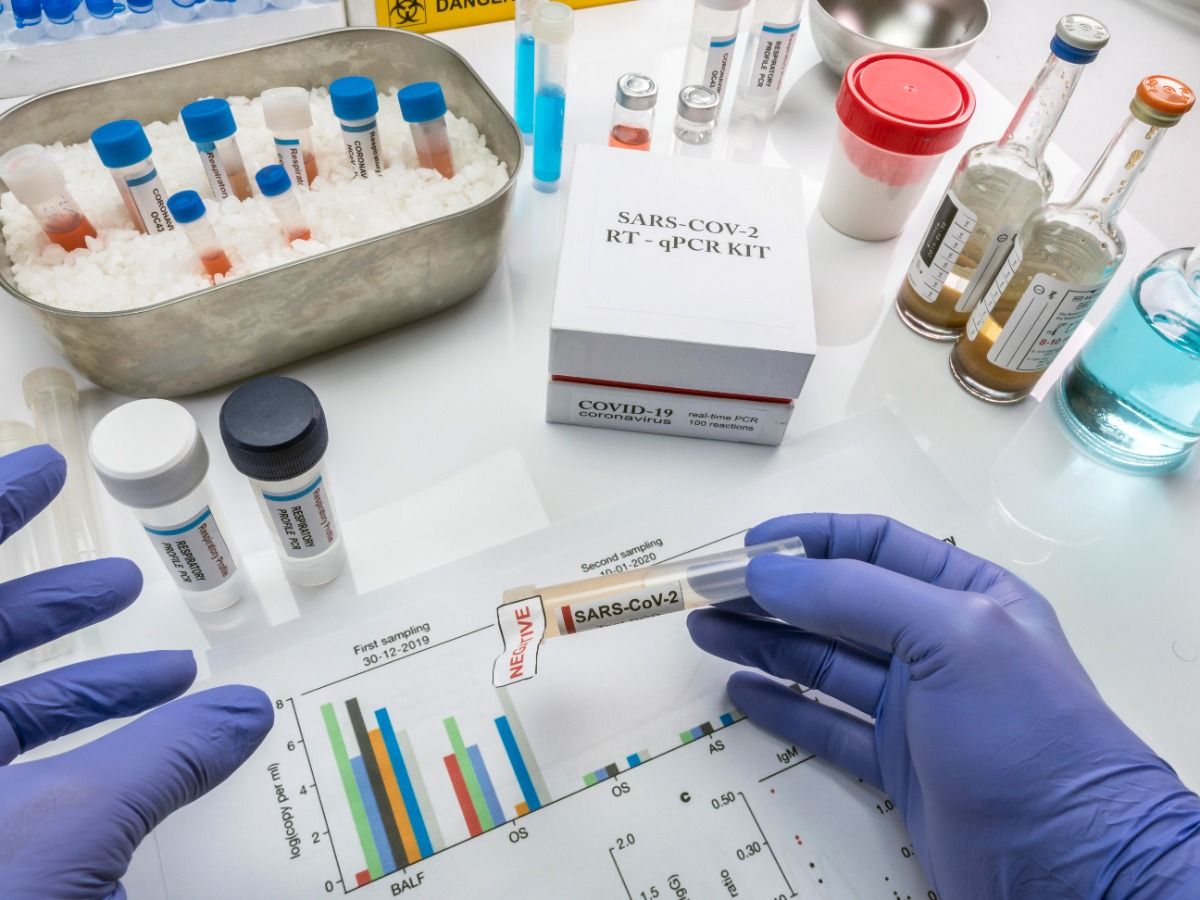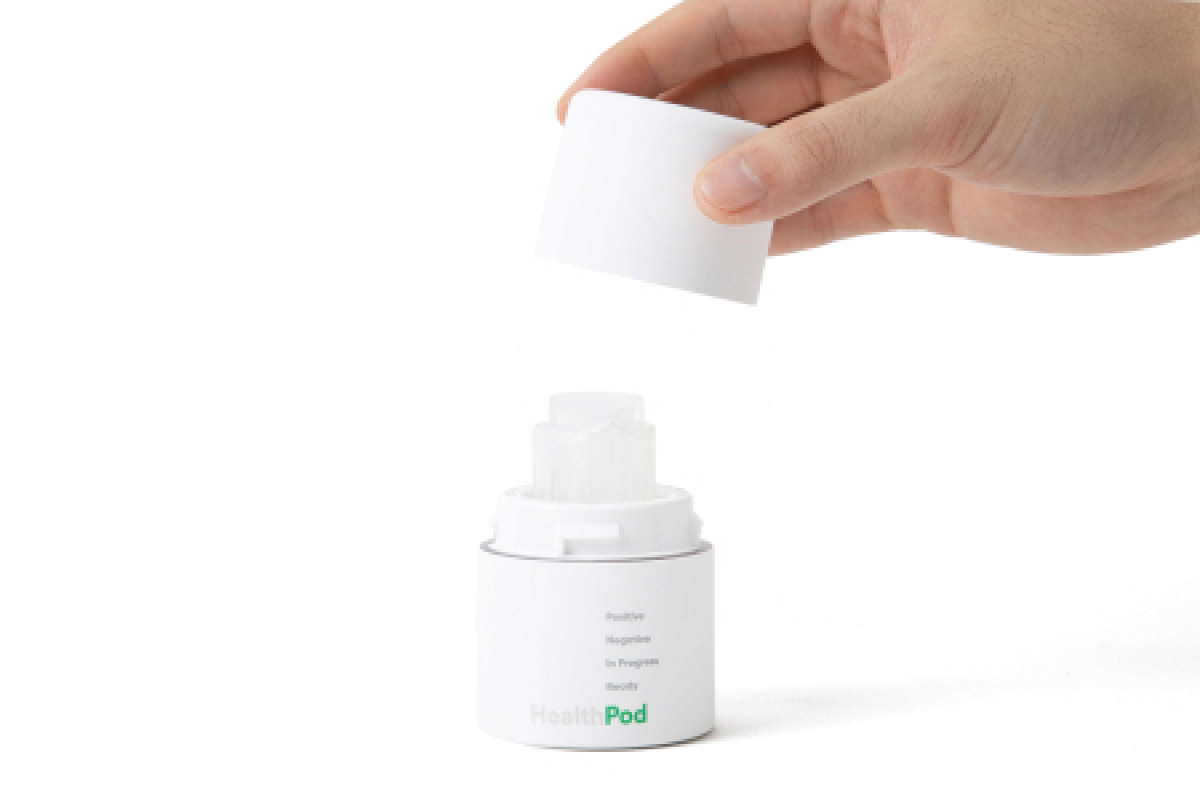
In the wake of widespread coronavirus and travel restrictions, rapid Covid tests have become a necessity. Antigen tests and RT-PCR tests have become necessary almost worldwide, especially if you want to travel. Diagnostic (viral) Covid tests help you determine your positive or negative Covid status, which aids you in determining if it’s safe to travel, be around other people, or go to work.
Covid-19 is typically characterized by symptoms such as fever, cough, sore throat, body aches, loss of the sense of taste or smell, fatigue, shortness of breath – just to name a few. The two most common laboratory tests to test your Covid status are RT-PCR and the rapid antigen test.
Circle HealthPod is a newly-launched portable Covid testing device that determines whether you have Covid-19 from the comfort of your own home. You’ll get your results on whether you’re positive or negative for Covid within20 minutes.
When should you be using an Antigen test, RT-PCR test, or an at-home Covid test such as the Circle HealthPod? Below, we will provide an overview on all three tests, and the difference between them.
1. Rapid Antigen Test
Antigen tests are immunoassays designed to detect specific Covid-19 viral antigens. Point-of-care, laboratory-based, and self-tests are currently authorized for use. They can be performed on nasal or nasopharyngeal swab specimens placed directly into the extraction buffer or reagent.
Antigen tests for severe acute respiratory syndrome coronavirus (SARS-CoV) are relatively inexpensive, quick, and applicable to people of any age. They return results in approximately 15–30 minutes. These tests tend to be less sensitive than other nucleic acid amplification tests, which detect and amplify the presence of viral nucleic acid. However, nucleic acid amplification tests (NAATs) can produce positive results several weeks after initial infection. They can detect levels of viral nucleic acid even when the virus cannot be cultured. This shows that a positive result does not always indicate contagiousness.
Because antigen tests are less sensitive, additional testing with NAAT is recommended. However, where rapid test turnaround time is critical and immediate results are desired, antigen tests may be used to screen for the presence or absence of this pathogen. This early detection enables infection prevention and control measures to be initiated, preventing transmission.
Antigen tests are faster and cheaper than a RT-PCR test, but are they quite as accurate?

2. RT-PCR Test
The Reverse Transcription-Polymerase Chain Reaction (RT-PCR) test is the gold standard for diagnosing viral diseases like Covid- 19. The RT-PCR test is extremely accurate, and a correct diagnosis is almost guaranteed. This means that there is a high possibility of a positive result for those who have the virus. However, there is still a small chance of misinterpretation and incorrectly diagnosing someone as positive when they are, in fact, negative. Typically, the rapid antigen test has an analytic sensitivity of 30% to 40% lower than RT-PCR test, depending on whether the tested people are symptomatic or asymptomatic.
How is the RT-PCR Test Conducted?
The clinician begins the RT-PCR test by using a long, soft swab to collect a sample of respiratory secretions from the back of the nose. This sample is then treated with chemicals to extract viral RNA. If a person is infected with a virus, the sample will have both their DNA and the virus’ RNA. The reverse transcriptase enzyme, which stands for RT, converts RNA extracted from a sample into DNA. This conversion is necessary because the virus that causes Covid-19 is a single-stranded RNA-based virus and cannot be amplified without being changed into double-stranded DNA.
The next step involves identifying the virus via fluorescent dye identification through the viral DNA amplification process. A specialized device tracks the amount of fluorescence in the sample after each cycle of amplification and presents what is measured in real time on the computer. The result is then examined and determined as positive or negative. Amplifying viral genetic material is a lengthier process.
When you get a RT-PCR test, you might not get your test results for 24 hours. On the other hand, rapid antigen test yields result in 15-30 minutes to detect the presence of antigens on the surface of the coronavirus.

3. HealthPod Technology (RT-LAMP)
LAMP, Loop-mediated Isothermal Amplification, is a single tube technique for the amplification of DNA at a constant temperature without the need for thermal cycling. This technology provides a low cost alternative to polymerase chain reaction (PCR) technology to detect Covid-19. The HealthPod is an affordable and rapid Covid testing solution developed to be used directly in the privacy of your own home, without costly transportation or a professional clinician. However, it’s not just another at-home Covid test. The HealthPod is an ultra-portable, lab-quality testing device created to work with disposable, single-use Capsules. Designed to be used often, repeatedly and quickly, this system is an effective alternative to lab testing. HealthPod technology minimizes wait times for test results, and reduces health risks for those who have a job that requires them to be around people, or are unable to go off-site for medical testing.
HealthPod technology is known to detect all known strains and variants of Covid-19, including Omicron and Delta variants. Developed at the University of Oxford, it provides precision molecular accuracy in just around 20 minutes. With that said, unlike other molecular tests that are only usable once, the HealthPod itself is reusable and it uses single-use molecular capsules to deliver a satisfying convenience and a more systematic testing process.
This way, you can afford to get tested often, and regularly check your Covid status, making you more confident about the safety of yourself and your loved ones.
What Should You Do if You Detect Covid Symptoms?
If you think you have Covid symptoms, be sure to follow the steps outlined by the CDC below to care for yourself and others:
- Most patients who have mild symptoms of Covid-19 can recover at home without medical care. However, to protect others, avoid going to crowded places such as grocery stores or sporting events.
- Self-isolate and practice social distancing.
- It is recommended that you get rest, drink plenty of fluids and take over-the-counter medication to help you feel better, such as acetaminophen for body aches.
- The best way to avoid further exposure is to remain in a single room of your home and avoid being with others. This means that if you don’t live alone, try to use separate utensils and a separate bathroom. Wear a proper mask with N95 filters when you’re around other people.
- To prevent infection, make sure to wash your hands often with soap and water for at least 20 seconds, especially after using the bathroom. Check out these tips on how to properly wash your hands. Always carry alcohol-based hand sanitizer with you so that you can sanitize your hands when on public transportation or at restaurants.

Covid-19 Vaccinations
Many effective vaccines are now available to prevent the spread of Covid-19, including AstraZeneca/Oxford vaccine, Johnson and Johnson, Moderna Pfizer/BioNTech, Sinopharm, Sinovac, COVAXIN, Covovax and Nuvaxovid. These vaccines are the standard immunization in case of exposure to the Covid-19 virus. Although no vaccine is 100% protective, the vaccine indeed reduces the impact of the virus and boosts your chance of being immune to the disease, in case you unwittingly come into contact with someone who is positive for Covid.
The Bottom Line
Each type of Covid test has its pros and cons. Having this information when a patient presents with the symptoms of coronavirus makes testing more efficient. In many cases, this means a faster estimate of whether or not the virus has mutated and made the patient contagious.
It should be noted that the above three types of Covid tests (Antigen test, RT-PCR test and HealthPod molecular testing) are not the only types of Covid tests available. These are just three of the effective methods to test your Covid status.
The medical community is working tirelessly to educate people about Covid-19. We can all do our part by staying informed, staying safe, and practicing extra safety precautions.







Comments are closed.